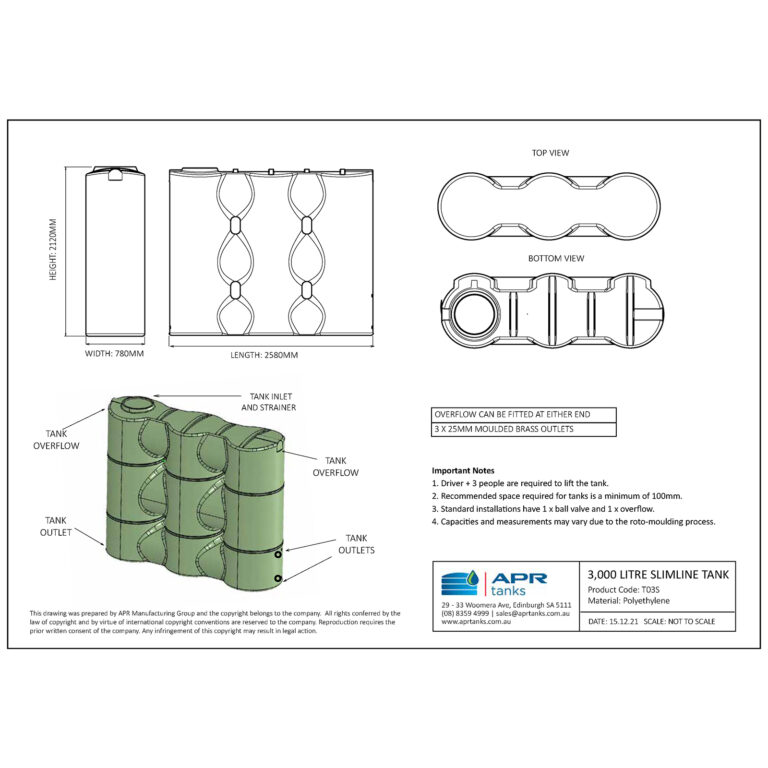Exploring the Different Usages of Rainwater Containers for Residential and Commercial Features
As the international focus on lasting living techniques continues to intensify, the usage of rainwater storage tanks in both household and commercial setups has actually emerged as a pertinent solution. The complex usages of rainwater storage tanks offer a compelling situation for their fostering, not only as a sensible water-saving measure yet additionally as a testament to responsible resource administration.
Benefits of Utilizing Rain Storage Tanks
Using rain tanks offers countless advantages for both homes and communities in regards to water conservation and sustainability. Among the crucial advantages of utilizing rainwater storage tanks is the significant reduction in dependence on keys water - Slimline water tanks. By recording and storing rain for later use, people and areas can lower their need for cured water, inevitably relieving the problem on water treatment facilities and decreasing energy intake connected with water transportation and therapy
Furthermore, rainwater gathering via tanks offers a reputable alternate water resource throughout times of water constraints or scarcities. This kept rain can be made use of for different non-potable purposes such as irrigation, flushing toilets, and cleaning garments, lowering the pressure on conventional water resources. Additionally, making use of rain storage tanks can result in set you back financial savings for both households and neighborhoods by decreasing water costs and reducing the need for expensive infrastructure expansions to satisfy expanding water demands.
Fundamentally, the utilization of rainwater containers offers a sustainable and eco-friendly technique to water management, profiting both specific customers and the wider neighborhood in regards to water preservation, cost-efficiency, and resilience.
Rainwater Tank Use in Watering
Given the advantages of rainwater tanks in saving water sources and reducing dependence on mains water system, a significant application depends on making use of kept rain for watering purposes - Slimline water tanks. Rain collecting systems can properly gather and keep rainwater, providing a lasting water source for watering gardens, yards, and agricultural areas. By using rain for watering, building owners can lower their dependence on treated water resources, causing cost savings and ecological advantages

One of the main advantages of using rain for irrigation is its pureness. Rainwater is normally soft and free from the chemicals and additives typically discovered in keys water, making it ideal for nourishing plants without the threat of dangerous results. Additionally, rain is at ambient temperature level, which can profit plant development by preventing temperature level shocks that can accompany my latest blog post cold keys water.
Rainwater Storage Tanks for Bathroom Flushing

Carrying out rainwater storage tanks for bathroom flushing is an economical and ecologically friendly method that can be quickly integrated into both household and industrial properties. The kept rain can be used to purge commodes by connecting the tank to the existing plumbing system. This straightforward yet efficient solution can considerably lower water intake in a building, especially in areas where water shortage is a concern.

Integrating Rain Containers in Landscaping
These tanks can capture and store rain overflow from roofing systems, which can after that be made use of for sprinkling yards, lawns, and plants. By using rain for irrigation objectives, property proprietors can blog here reduce their dependence on municipal water sources, leading to set you back financial savings and preservation of precious water resources.
In addition to providing a lasting water source for landscaping demands, rainwater containers can additionally assist in managing stormwater runoff. By catching rainwater that would otherwise move right into storm drains, these tanks can mitigate erosion, reduce flooding threats, and avoid pollution of natural water bodies. Integrating rainwater storage tanks in landscaping can contribute to the general aesthetic allure of the building, showcasing a dedication to ecological stewardship.
Industrial Applications of Rain Tanks
Making use of rainwater storage tanks in business setups offers a lasting option for water monitoring and conservation, benefiting organizations and the environment alike. One key business use is for irrigation purposes, where collected rainwater can be made use of to water landscape you can find out more design, yards, and farming areas surrounding business residential properties.
Moreover, rain storage tanks can be incorporated right into the fire reductions systems of industrial buildings. By having a dedicated water source for firefighting functions, services can boost their fire security actions and possibly decrease insurance coverage premiums. Additionally, rain accumulated in containers can be dealt with and made use of for non-potable functions within commercial homes, such as flushing bathrooms, cleansing, and cooling down systems. This not only conserves fresh water resources but also decreases operating costs for organizations. In general, the consolidation of rain storage tanks in business setups presents a practical and ecologically accountable method to water administration.
Conclusion
From watering to toilet flushing and landscape design, the usage of rain tanks can help conserve water sources and decrease water bills. Overall, the adaptability and sustainability of rainwater tanks make them a valuable financial investment for any type of residential or commercial property owner looking to raise water effectiveness.